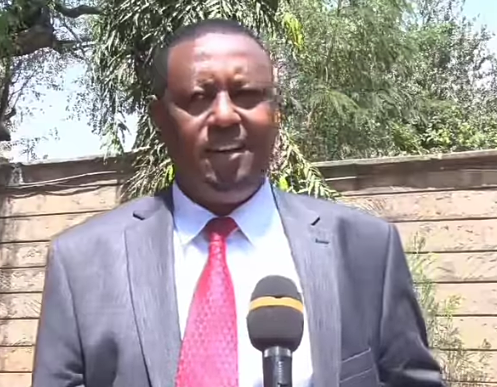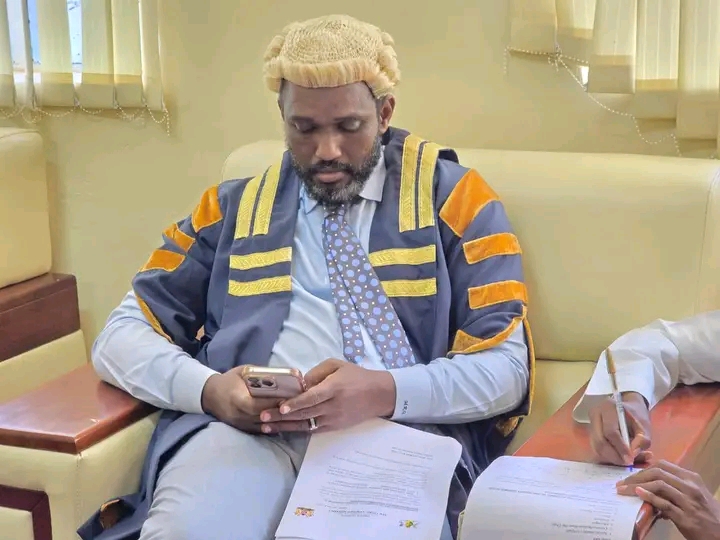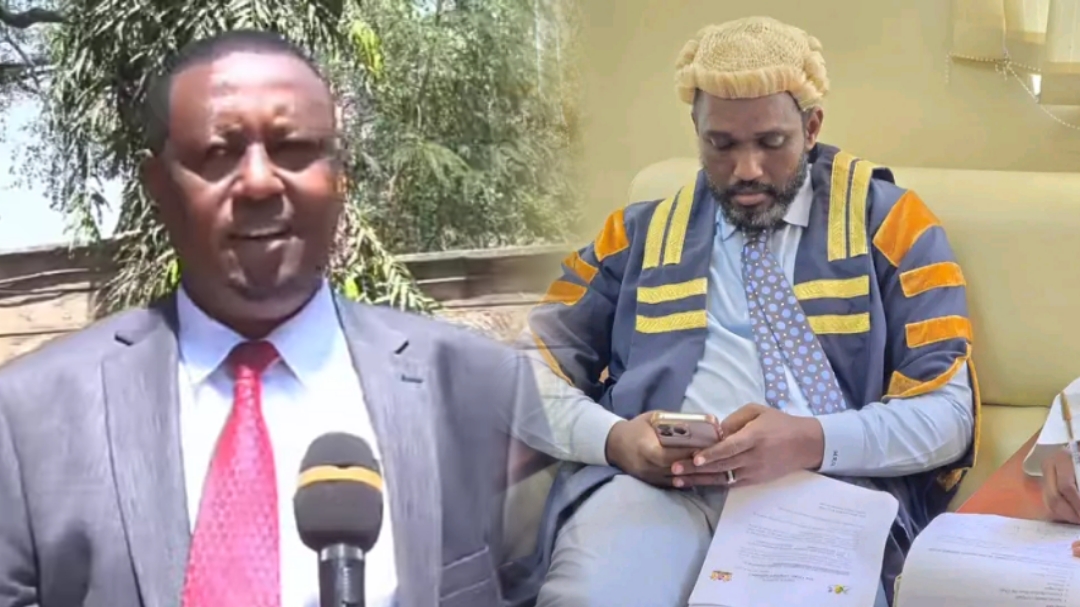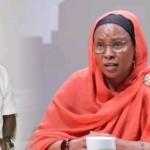In a riveting escalation of Isiolo County’s political saga, County Assembly Speaker Abdullahi Banticha has launched a scathing counteroffensive against the former speaker Mohamed Roba Qoto(MRQ), accusing him of orchestrating a calculated political witch-hunt under the guise of leadership restructuring and impeachment efforts.
This unfolding drama, steeped in ambition and rivalry, lays bare a deepening power struggle as factions vie for dominance ahead of the 2027 elections.
Banticha’s resolute defense of his position and sharp critique of Roba’s motives have thrust Isiolo’s governance into the national spotlight, raising questions about political accountability, procedural integrity, and the shadow of succession politics.
A Speaker Under Siege: Banticha’s Defiant Stand
At the heart of the controversy is Banticha’s unwavering assertion of his legitimacy as the Isiolo County Assembly Speaker.
Dismissing Roba’s recent attempts to overhaul the Assembly’s leadership as “null and void,” Banticha has positioned himself as a steadfast guardian of procedural propriety.
“I remain the legitimate Speaker of the Isiolo County Assembly,” he declared, underscoring his continued execution of duties, including receiving his official salary for June and July.
This financial detail serves as a concrete rebuttal to Roba’s claims, reinforcing Banticha’s authority and exposing the fragility of his rival’s maneuvers.

Banticha’s defiance is not merely a personal stand but a broader critique of what he describes as Roba’s desperate bid to cling to influence.
By framing Roba’s actions as a politically motivated vendetta, Banticha has shifted the narrative, casting himself as a principled leader resisting a campaign of destabilization.
His resolve resonates with observers who see the conflict as emblematic of broader challenges in Kenyan county politics, where personal ambitions often overshadow public service.
The Impeachment Plot: A Political Smokescreen?
Central to Banticha’s accusations is Roba’s failed attempt to impeach Isiolo Governor Abdi Ibrahim Hassan(Guyo).
According to Banticha, this move was not rooted in governance concerns but in a calculated effort to undermine rivals in the race for the 2027 Senate seat.
“Roba’s impeachment push was driven by political interests, not substance,” Banticha asserted, pointing to rumors linking former Governor Godana Doyo to Governor Guyo’s camp as a potential Senate candidate.
These rumors, Banticha insists, are baseless, noting that Governor Abdi has never endorsed Doyo for any position. “This is about Roba fearing he’s been sidelined in the succession politics,” he added, framing the impeachment as a preemptive strike born of personal insecurity rather than public interest.
The impeachment saga has exposed fault lines in Isiolo’s political landscape, with competing factions maneuvering for control. Banticha’s narrative paints Roba as a power-hungry figure willing to destabilize the county’s leadership to secure his own ambitions.
This accusation carries weight in a region where political loyalty and strategic alliances often dictate electoral outcomes. By calling out Roba’s motives, Banticha has positioned himself as a defender of stability, appealing to constituents wary of divisive politicking.
Defending the Clerk: A Stand Against Procedural Abuse
Banticha’s defense extends beyond his own position to include Clerk Salad Boru Guracha, whom he claims is being unfairly targeted for refusing to endorse Roba’s “illegal and unprocedural” agenda.
“Guracha served under Roba for nearly three years. If there were genuine concerns about his conduct, why wasn’t he removed then?” Banticha questioned, highlighting the inconsistency in Roba’s sudden critique of the clerk.
This pointed rhetoric underscores Banticha’s broader argument: that Roba’s actions are not about accountability but retribution against those who resist his influence.
Guracha’s plight has become a rallying point for Banticha’s supporters, who view the clerk’s targeting as emblematic of Roba’s willingness to bend institutional norms for political gain.
By defending Guracha, Banticha reinforces his image as a leader committed to fairness and due process, contrasting sharply with Roba’s alleged strong-arm tactics.
This narrative resonates in a political climate where transparency and adherence to protocol are increasingly demanded by an engaged electorate.
The 2027 Shadow: A Battle for Succession
The heart of Isiolo’s crisis lies in the looming 2027 elections, where the Senate seat has emerged as a coveted prize. Banticha’s analysis ties Roba’s actions to a deeper anxiety about his political relevance, particularly as rumors swirl about potential challengers like Godana Doyo.
While Banticha dismisses these rumors as unfounded, their persistence has fueled speculation and mistrust, creating a volatile backdrop for the current conflict. “This is not about governance,” Banticha emphasized. “It’s about Roba’s fear of being sidelined in the succession race.”
This focus on 2027 underscores the high stakes of Isiolo’s power struggle. With political careers on the line, the county has become a microcosm of Kenya’s broader electoral dynamics, where early positioning and strategic alliances shape outcomes long before ballots are cast.
Banticha’s ability to frame Roba’s actions as self-serving has given him a narrative edge, appealing to voters who prioritize stability and integrity over factional squabbles.
A County at a Crossroads
The unfolding drama in Isiolo signals a deepening rift that could have far-reaching implications for the county’s governance and electoral future.
As Banticha and Roba lock horns, the public is left to grapple with the consequences of a polarized leadership.

The accusations of political witch-hunts, procedural violations, and personal vendettas have eroded trust in the county’s institutions, raising questions about the ability of its leaders to prioritize development over power plays.
For Banticha, the path forward lies in consolidating his position as a principled leader. His defense of his speakership, coupled with his protection of Guracha and critique of Roba’s motives, positions him as a stabilizing force in a turbulent landscape.
Yet, the road to 2027 will be fraught with challenges, as competing factions intensify their efforts to shape Isiolo’s political destiny.
Wrap-Up: A Call for Accountability
As Isiolo navigates this turbulent chapter, Abdullahi Banticha’s stand against Mohamed Roba’s alleged political machinations offers a clarion call for accountability and transparency.
By exposing what he describes as a baseless witch-hunt, Banticha has not only defended his own legitimacy but also highlighted the dangers of prioritizing personal ambition over public good.
His leadership in this crisis underscores the need for principled governance in Isiolo, a county at a pivotal juncture.
For residents and observers alike, the unfolding saga serves as a stark reminder of the fragility of political institutions when subjected to factional rivalries.
As the 2027 elections draw closer, Banticha’s ability to maintain his footing while rallying support for stability will be critical. For now, his resolute defiance has cast a spotlight on Isiolo’s power struggle, ensuring that the county’s political drama remains a topic of national interest.
Share This Post





